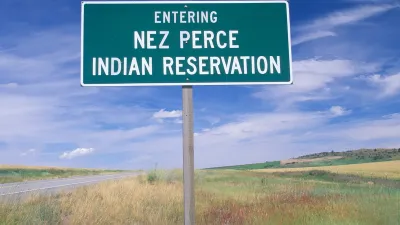For the last 30 years, China has led the world in economic growth at a hefty environmental price. Widespread protests have prompted the cabinet of China to mandate a "social risk assessment" for industrial projects, reports Keith Bradsher.
"No major projects can be launched without social risk evaluations," said Zhou Shengxian, the environment minister, at a news conference on Monday. "By doing so, I hope we can reduce the number of mass incidents in the future." The national government has made such statements before, but this is the first time that the cabinet has ordered social risk assessments. Bradsher explains, the move is "aimed at curtailing the large and increasingly violent environmental protests of the last year, which forced the suspension or cancellation of chemical plants, coal-fired power plants and a giant copper smelter."
It is unclear how the social risk assessments will be conducted, but Zhou indicated that "they would involve looking at the likelihood that a project would set off a public backlash." Some local governments in China already have these procedures in place, but more action on environmental issues is needed. The mass protests, says Zhou, happen due to mistakes from projects that "start without official approval, without proper environmental impact assessments and without an assessment of community sentiment, and weak local governments may also be a factor."
"The environmental agencies feel they have been put under too much pressure, beyond the authority they've got," said Ma Jun, the director of the Institute of Public and Environmental Affairs. He explains, "Many environmental officials in China want the introduction of social risk assessments because protests against industrial projects often involve broader issues than just the environment and may extend to questions like whether the land for the project was lawfully obtained with proper compensation for its owners."
Each new protest in recent months has set off frenzied national discussions on the Internet, adds Bradsher, and topped most-searched subjects lists. The protests have also been fueled by youths using "social media to coordinate their activities during clashes with security forces - trends that are certain to have dismayed the country's political leadership."
FULL STORY: ‘Social Risk’ Test Ordered by China for Big Projects

Maui's Vacation Rental Debate Turns Ugly
Verbal attacks, misinformation campaigns and fistfights plague a high-stakes debate to convert thousands of vacation rentals into long-term housing.

Planetizen Federal Action Tracker
A weekly monitor of how Trump’s orders and actions are impacting planners and planning in America.

Chicago’s Ghost Rails
Just beneath the surface of the modern city lie the remnants of its expansive early 20th-century streetcar system.

Bend, Oregon Zoning Reforms Prioritize Small-Scale Housing
The city altered its zoning code to allow multi-family housing and eliminated parking mandates citywide.

Amtrak Cutting Jobs, Funding to High-Speed Rail
The agency plans to cut 10 percent of its workforce and has confirmed it will not fund new high-speed rail projects.

LA Denies Basic Services to Unhoused Residents
The city has repeatedly failed to respond to requests for trash pickup at encampment sites, and eliminated a program that provided mobile showers and toilets.
Urban Design for Planners 1: Software Tools
This six-course series explores essential urban design concepts using open source software and equips planners with the tools they need to participate fully in the urban design process.
Planning for Universal Design
Learn the tools for implementing Universal Design in planning regulations.
planning NEXT
Appalachian Highlands Housing Partners
Mpact (founded as Rail~Volution)
City of Camden Redevelopment Agency
City of Astoria
City of Portland
City of Laramie




























